(srpski) Projekti odobreni u okviru poziva „Mladi grade mir na Zapadnom Balkanu“
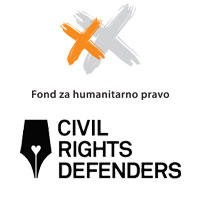
Sorry, this entry is only available in srpski.


Sorry, this entry is only available in srpski.
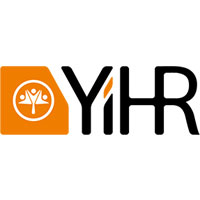
Sorry, this entry is only available in srpski.


On Friday 21 December 2018, the Humanitarian Law Center (HLC) submitted to the Ministry of Labour, Employment and Veteran and Social Affairs (Ministry) its comments on the Draft Law on Veteran and Disability Benefits (Draft Law). In the comments the HLC points out that the public consultation process that preceded the preparation of the draft law was non- transparent and that the text of the Draft Law, instead of improving the position of civilian victims of war, maintains the discriminatory provisions contained in the law currently in effect, as a result of which civilian victims of war are put in an unfavourable position in relation to military victims of war.
In early August 2018, the Ministry established a working group to draft a law which would comprehensively regulate the rights of war veterans. Only members of war veteran and disabled servicemen associations were invited to participate in the working group. Associations of civilian victims, gathered around the Alliance of Serbian Associations of the Families of Missing Persons from the Territory of the former Yugoslavia, as well as interested experts in the field and other stakeholders were excluded from the process. Moreover, apart from announcing that the working group had been set up, the Ministry did not publish either of the two versions of the Draft Law on its website for comments. It was from the website of the Association of Disabled Wartime and Peacetime Veterans of Serbia that the HLC got hold of the Draft Law dated 9 December 2018. By not publishing the Draft Law on its website and not including associations of war-disabled civilians and civilian victims of war in the consultation process, the Ministry made it impossible for those interested parties to contribute their views on the proposed legislation.

Sorry, this entry is only available in srpski.
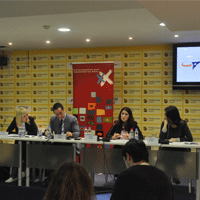

On Thursday, 20 December 2018, the Humanitarian Law Center (HLC) presented its “Third Report on the Implementation of the National Strategy for the Prosecution of War Crimes”. Opening the discussion on the report, Ivana Žanić from the HLC pointed out that the main obstacle to gathering information for the preparation of this report has been the fact that the Working Body, which should monitor and report on the implementation of the National Strategy, was established after a year and a half of delay. So far, they have published a total of four reports, which together cover the period up until September 2018. Apart from the fact that the reports of the Working Body were late, they have often also been confusing and difficult to understand, and some their estimates of the implementation of the activities both arbitrary and illogical.
The author of the Third Report, Višnja Šijačić, pointed out that the HLC’s findings show that 33 months since the adoption of the National Strategy, there has been no progress in the field of war crimes prosecution. The delay in the implementation of the Strategy is a dominant factor, war crimes trials continue to be unreasonably long, and no progress has been made in the field of the procedural rights of victims, while the number of missing persons has not been reduced at the expected rate. She pointed out that in the period covered by this report there was no progress in terms of improving society’s attitudes towards war crimes or war crimes trials. On the contrary, the past few months have seen an expansion of the promotion of convicted war criminals in the public, and the denial of genocide in Srebrenica.

Sorry, this entry is only available in srpski.

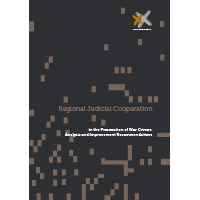 In consequence of the cross-border nature of the armed conflicts in the former Yugoslavia, victims, witnesses, perpetrators and evidence are not for the most part located within the territory of a single state and do not fall within the competence of a single national judiciary. Additionally, due to the fact that almost all former Yugoslavia successor states ban the extradition of their own nationals to face trial in other countries, prosecution of war crimes is unthinkable without an effective cooperation among the countries in the region. Given the importance of the fight against impunity for war crimes, regional cooperation is among the key commitments that Serbia undertook as part of its European Union (EU) Accession negotiations.
In consequence of the cross-border nature of the armed conflicts in the former Yugoslavia, victims, witnesses, perpetrators and evidence are not for the most part located within the territory of a single state and do not fall within the competence of a single national judiciary. Additionally, due to the fact that almost all former Yugoslavia successor states ban the extradition of their own nationals to face trial in other countries, prosecution of war crimes is unthinkable without an effective cooperation among the countries in the region. Given the importance of the fight against impunity for war crimes, regional cooperation is among the key commitments that Serbia undertook as part of its European Union (EU) Accession negotiations.
However, cooperation among judicial institutions in the region has never reached its full potential, and has even been stagnating over the past few years. The major barriers to effective regional cooperation are as follows: the issue of universal jurisdiction, trials in absentia, lack of cooperation between the Office of the War Crimes Prosecutor of Serbia with Kosovo justice institutions, and the lack of trust between judicial institutions in the countries of the region.
This paper analyses the existing normative framework for regional cooperation, cooperation mechanisms and challenges hindering effective cooperation, with a view to proposing a set of recommendations for its improvement.
Regional Judicial Cooperation in the Prosecution of War Crimes: Analysis and Improvement Recommendations is available here.

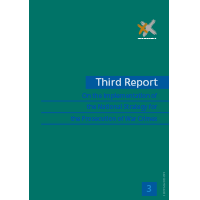 The Humanitarian Law Center (HLC) has been monitoring and providing support to war crimes trials ever since the first war crimes proceedings conducted in Serbia in 2002. The HLC is the only organization that has been continuously monitoring and analysing war crimes trials in Serbia and informing the public at home and abroad about them. It has been representing victims (injured parties) in war crimes cases through an Attorney, filing criminal complaints with the Office of the War Crimes Prosecutors (OWCP) against suspected perpetrators, and sharing its documentation on war crimes. Also, the HLC has been identifying witnesses and victims and encouraging them to give evidence in court and thus contribute towards achieving justice for past crimes.
The Humanitarian Law Center (HLC) has been monitoring and providing support to war crimes trials ever since the first war crimes proceedings conducted in Serbia in 2002. The HLC is the only organization that has been continuously monitoring and analysing war crimes trials in Serbia and informing the public at home and abroad about them. It has been representing victims (injured parties) in war crimes cases through an Attorney, filing criminal complaints with the Office of the War Crimes Prosecutors (OWCP) against suspected perpetrators, and sharing its documentation on war crimes. Also, the HLC has been identifying witnesses and victims and encouraging them to give evidence in court and thus contribute towards achieving justice for past crimes.
The National Strategy for the Prosecution of War Crimes (hereinafter: the National Strategy) was adopted in February 2016. The HLC is the only non-governmental organisation that monitors and reports on its implementation with a view to assisting in a qualitative and quantitative assessment of the state of implementation of the measures and activities set forth in the National Strategy.